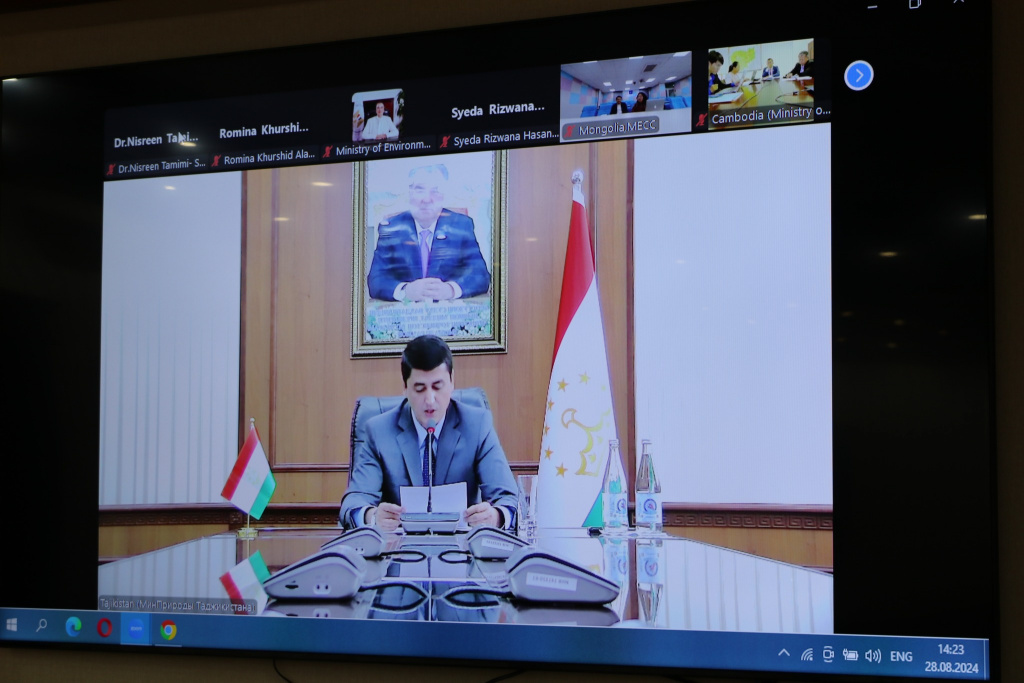Review of water and climate issues by the ministers of environmental protection of the member states of the Council for Cooperation and Confidence Building Measures in Asia

On August 28, the Chairman of the Committee for Environmental Protection under the Government of the Republic of Tajikistan, Bahodur Sheralizoda, virtually took part in the conference of the Ministers of Environmental Protection of the member states of the Council for Cooperation and Confidence Building Measures in Asia on environmental issues.
In his speech, the Chairman of the Committee emphasized that the conference contributes to uniting efforts to combat environmental challenges, since the planet’s environmental problems are transboundary in nature and their solution requires joint cooperation of states.
For the third year, Tajikistan has presented its national pavilion at the Conference of the Parties on Climate Change (COP 29), which will be held this year in Azerbaijan. At previous conferences of the parties on climate change, held in Egypt and the United Arab Emirates, Tajikistan demonstrated progress in preventing climate change, including efforts to reduce greenhouse gas emissions, adapt to climate change and develop renewable energy sources.
At the virtual conference, it was noted that at the initiative of Tajikistan, a resolution of the United Nations General Assembly was adopted to declare 2025 the International Year of Glacier Protection and to declare March 21 as World Glacier Day, and that an “International Trust Fund for Contribution to Glacier Protection” was also created. Tajikistan made its first financial contribution to this trust fund, and we hope that the international community and international organizations will also contribute to this fund.
The conference was attended by the Ministers of Environment of Tajikistan, Kazakhstan, Uzbekistan, Kyrgyzstan, Azerbaijan, Bahrain, Bangladesh, Cambodia, China, Egypt, India, Iran, Iraq, Jordan, Kuwait, Mongolia, Palestine, Qatar, Korea, Russia, Sri Lanka, Thailand, Turkey, the United Arab Emirates and Vietnam, who noted air pollution, climate change, sustainability of the "green" economy, biodiversity and water resources. At the end of the conference, a joint statement was adopted.

.png)
.png)









